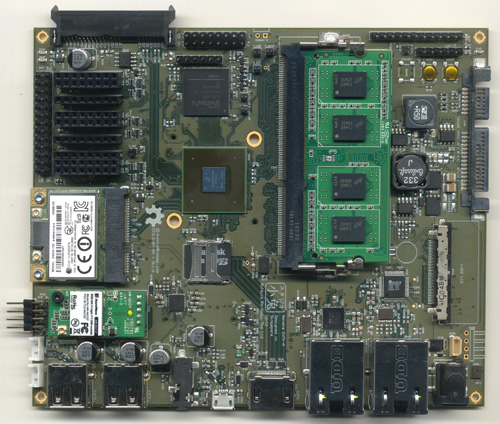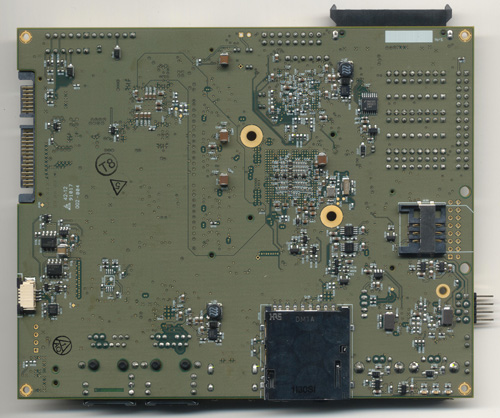ghostpatch
Active Member
Just stumbled across this article: http://makezine.com/magazine/building-an-open-source-laptop/
A few awesome people are building an open source/open hardware laptop. Meaning there's hardware documentation, no binary blobs etc. - all the good stuff. Its using a Freescale i.MX6 Quad SoC. They made a few nice design decisions, besides using off the shelf parts, like including an FPGA, two ethernet ports and an LCD adapter (which lets you connect a variety of LCDs to my understanding). The best thing is, they are planning a crowd funding campaign late Febuary or March! I'm so gonna buy it,... probably ; )
Novena man page: http://www.kosagi.com/w/index.php?title=Novena_Main_Page




the board looks pretty "end of the world military grade gear"... he he ; )
A few awesome people are building an open source/open hardware laptop. Meaning there's hardware documentation, no binary blobs etc. - all the good stuff. Its using a Freescale i.MX6 Quad SoC. They made a few nice design decisions, besides using off the shelf parts, like including an FPGA, two ethernet ports and an LCD adapter (which lets you connect a variety of LCDs to my understanding). The best thing is, they are planning a crowd funding campaign late Febuary or March! I'm so gonna buy it,... probably ; )
Novena man page: http://www.kosagi.com/w/index.php?title=Novena_Main_Page




the board looks pretty "end of the world military grade gear"... he he ; )
Last edited by a moderator:

